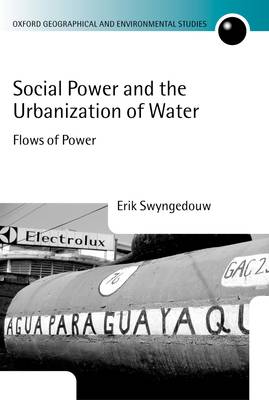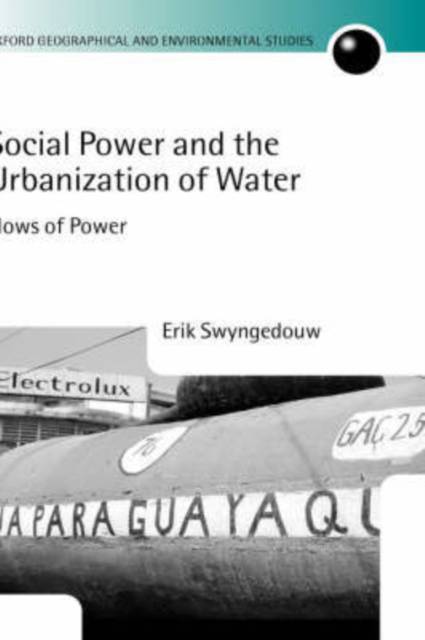
Bedankt voor het vertrouwen het afgelopen jaar! Om jou te bedanken bieden we GRATIS verzending (in België) aan op alles gedurende de hele maand januari.
- Afhalen na 1 uur in een winkel met voorraad
- In januari gratis thuislevering in België
- Ruim aanbod met 7 miljoen producten
Bedankt voor het vertrouwen het afgelopen jaar! Om jou te bedanken bieden we GRATIS verzending (in België) aan op alles gedurende de hele maand januari.
- Afhalen na 1 uur in een winkel met voorraad
- In januari gratis thuislevering in België
- Ruim aanbod met 7 miljoen producten
Zoeken
€ 386,95
+ 773 punten
Omschrijving
Taking as his case-study the city of Guayaquil in Ecuador, where 600,000 people lack easy access to potable water, Erik Swyngedouw aims to reconstruct, theoretically and empirically, the political, social, and economic conduits through which water flows, and to identify how power relations infuse the metabolic transformation of water as it becomes urban. These flows of water which are simultaneously physical and social carry in their currents the embodiment of myriad social struggles and conflicts. The excavation of these flows narrates stories about the city's structure and development. Yet these flows also carry the potential for an improved, more just, and more equitable right to the city and its water. The flows of power that are captured by urban water circulation also suggest that the question of urban sustainability is not just about achieving sound ecological and environmental conditions, but first and foremost about a social struggle for access and control; a struggle not just for the right to water, but for the right to the city itself.
Specificaties
Betrokkenen
- Auteur(s):
- Uitgeverij:
Inhoud
- Aantal bladzijden:
- 228
- Taal:
- Engels
- Reeks:
Eigenschappen
- Productcode (EAN):
- 9780198233916
- Verschijningsdatum:
- 6/05/2004
- Uitvoering:
- Hardcover
- Formaat:
- Genaaid
- Afmetingen:
- 156 mm x 234 mm
- Gewicht:
- 498 g

Alleen bij Standaard Boekhandel
+ 773 punten op je klantenkaart van Standaard Boekhandel
Beoordelingen
We publiceren alleen reviews die voldoen aan de voorwaarden voor reviews. Bekijk onze voorwaarden voor reviews.









